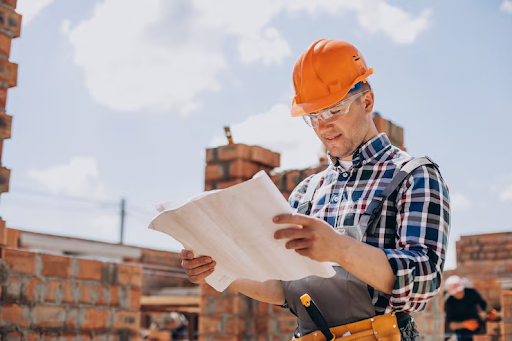Builders oversee, plan, and carry out construction. They are also in charge of maintaining and repairing residential and business structures.
They manage a project by doing the work themselves or arranging for subcontractors to complete particular tasks.
In addition to ensuring that building projects follow industry and governmental norms, builders also have a responsibility to their clients.
They work primarily in industrial settings. Their level of expertise and area of specialisation determines their daily responsibilities.
How to Be a Good Builder?
To be a good builder, you must have a solid understanding of the tools and construction trade. Building procedures, best practices, building rules, and safety standards are insider information you can acquire by starting as a labourer.
You must be in good physical condition to assist your team with constructing duties. As a builder, you will be responsible for your team a lot, so you need to have good leadership and communication abilities.
Responsibilities Of A Custom Home Builder
Managing subcontractors
A residential builder is required to oversee subcontractors from the initial design phase. He ensures that the subcontractor and the design team synchronize the main building elements.
While maintaining schedule and quality, the home builder must supervise the contractor concerning different construction regulations and aspects.
Keep an eye on the budget.
The builder will monitor the budget during your bespoke home’s entire design and construction process. If the expected price changes, they will keep you informed.
In addition, your builder will invoice you for change requests and give a deadline for completing the job.
Provide superior quality
Unrivalled quality is not just a notion but a promise when working with custom home builders. No one wants to buy a house that starts to fall apart a few months after they move in, and this is likely to happen if you try to take shortcuts.
They may collaborate with industry-leading partners, allowing them to collaborate with top architects, designers, and subcontractors.
Furthermore, your builders take care of the building’s administrative aspects, saving you great stress.
Project Planning & Design
Home builders are involved in the project’s planning and design phases. They collaborate closely with designers and architects to turn your specifications and ideas into a practical strategy.
This involves drawing plans, choosing supplies, and estimating the total cost of the job.
They may help you refine your design concepts and provide helpful advice on improving your home’s appearance and use.
Health & Safety Compliance
Homebuilders must implement and enforce health and safety protocols. This involves following safety guidelines, Scorpion attenuator, donning the proper personal protection gear, and securing a workplace.
Regular quality checks and inspections are also crucial since builders quickly resolve flaws or problems.
Sourcing & Procuring Materials
Home builders are responsible for sourcing and procuring all the materials needed for the building. This includes roofing, wood, brickwork, and fixtures and fittings.
They must ensure that reliable vendors obtain the materials and fulfil quality requirements.
The builder’s role is crucial as the quality of materials directly affects the home’s durability.

